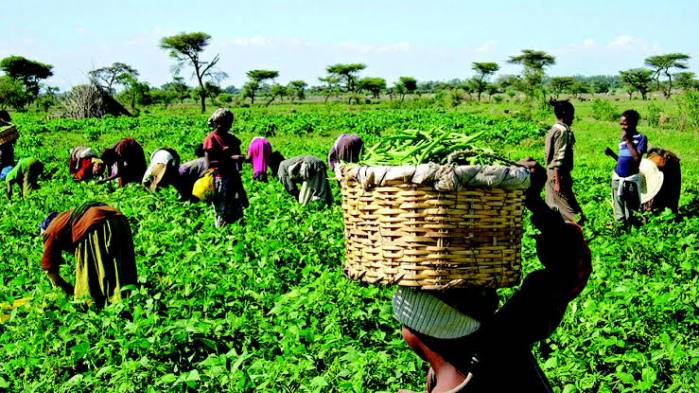The Smallholder Women Farmers in Nigeria (SWOFON) has called for more budgetary allocation to agriculture sector by the Federal Capital Territory (FCT).
Ogechi Okebugwu, Programme Coordinator, SWOFON, expressed the concern at the low budgetary allocation at the 2020 FCT Stakeholders Consultative Forum in Abuja on Thursday.
She noted that allocation of less than three per cent of the Federal Capital Territory (FCT) Statutory Budget to agriculture was too small.
She said the agricultural sector, which comprised over 70 per cent of women farmers was not receiving the needed attention particularly in the FCT.
She said from available statistics, the FCT budgetary allocation to agriculture had been less than 10 per cent as stated in the Maputo declaration, which Nigeria signed to.
According to her, beyond being abysmal, the agriculture allocation in the FCT kept decreasing on an annual basis.
“Our women farmers put in so much to put food on the table for all Nigerians.
“Unfortunately, the continuous reduction in agric budget, particularly in the FCT is not encouraging and women, who make up over 70 per cent of farmers are mostly affected.
“There is a need for FCT to have an agricultural policy that includes women farmers and specifically to address how women access land because access to land has been a huge problem for women farmers.
“You find out that most times they get land on lease and it is a big problem.
“The question is, if they plant on leased land what will be there for them during harvest.
“Another question is, what eventually gets to the market after post harvest losses among other factors,” she said.
Okebugwu further noted that “another concern that should be addressed in the policy is access to credit. There should be provision for zero collateral to access credit.
READ ALSO: 10,000 Farmers To Benefit From World Bank Assisted Project In Lagos — Commissioner
“Also, another concern for women farmers is insecurity. How do our women farmers go to farm without being attacked by bandits.
“These are salient issues that need to be addressed by the government and other stakeholders.
“We need to look for ways to help women farmers, particularly those in the FCT to improve their livelihood, that of their families and contribute more to ensuring food security in the country.
The coordinator said the organisation would not rest on its oars in ensuring that more attention was paid to agriculture, particularly as it affected women.
She stressed that beyond holding the forum annually to analyse agriculture budget, SWOFON was involved in advocacy to let stakeholders know the plight of women farmers.
Mr. Chris Kaka, Consultant for SWOFON on the project, said available statistics since 2015, showed continuous decrease in FCT budgetary allocation to the agricultural sector.
Kaka, who was the key presenter at the forum, stated that the allocation had been less than three per cent for five years running.
He added that the development was discouraging in view of the importance of agriculture to nation building.
“The budget analysis is to interrogate what they have done in addressing our issues.
“The concern for women farmers is that if you check, the agricultural value chain studies have shown that women play more role than men in the agricultural value chain.
“This huge contribution is particularly in the rural areas. They are not only helping in cultivating the land but in processing and marketing these agricultural products.
“So, we are saying the concern of women must be brought to the front burner when discussing agricultural issues.
“We observed that from 2015 to 2020 less than three per cent has gone to agriculture,” he said.
He added, “last year it was about 2.1 per cent but this year it is only 1.8 per cent.
“We are waiting to see what the National Assembly will do with the revised budget of the FCT.
“We are expecting them not to reduce the allocation to agriculture.”
The consultant said no country could claim to be sovereign if it failed to tackle the issue of food security.
He called on the government to honour the Maputo commitment and allocate at least 10 per cent of statutory budget to agriculture to ensure food security.
Mrs Mercy Nnanna, FCT SWOFON Chapter Secretary, called for inclusion of women in FCT budgetary processes to ensure mainstreaming of gender issues in agriculture.
She said, “reduction in budgetary allocation to agriculture in the FCT is affecting us.
“Nigeria signed the Maputo Declaration that states that at least 10 per cent of our annual budget should go to agriculture. Unfortunately that is not the case.
“Even if we cannot allocate 10 per cent at least there should be increase and not continuous decrease as we are witnessing today.”(NAN)



